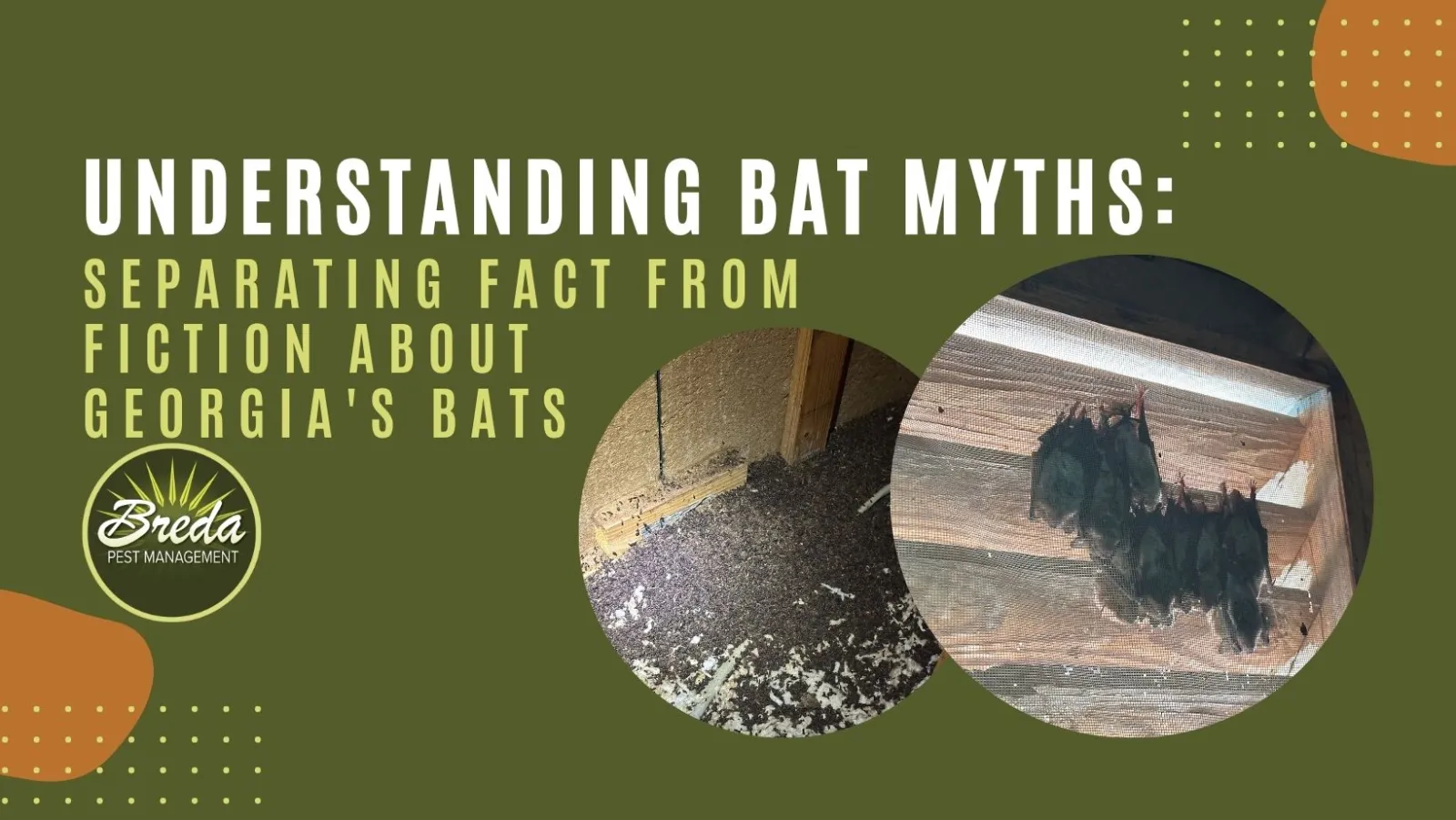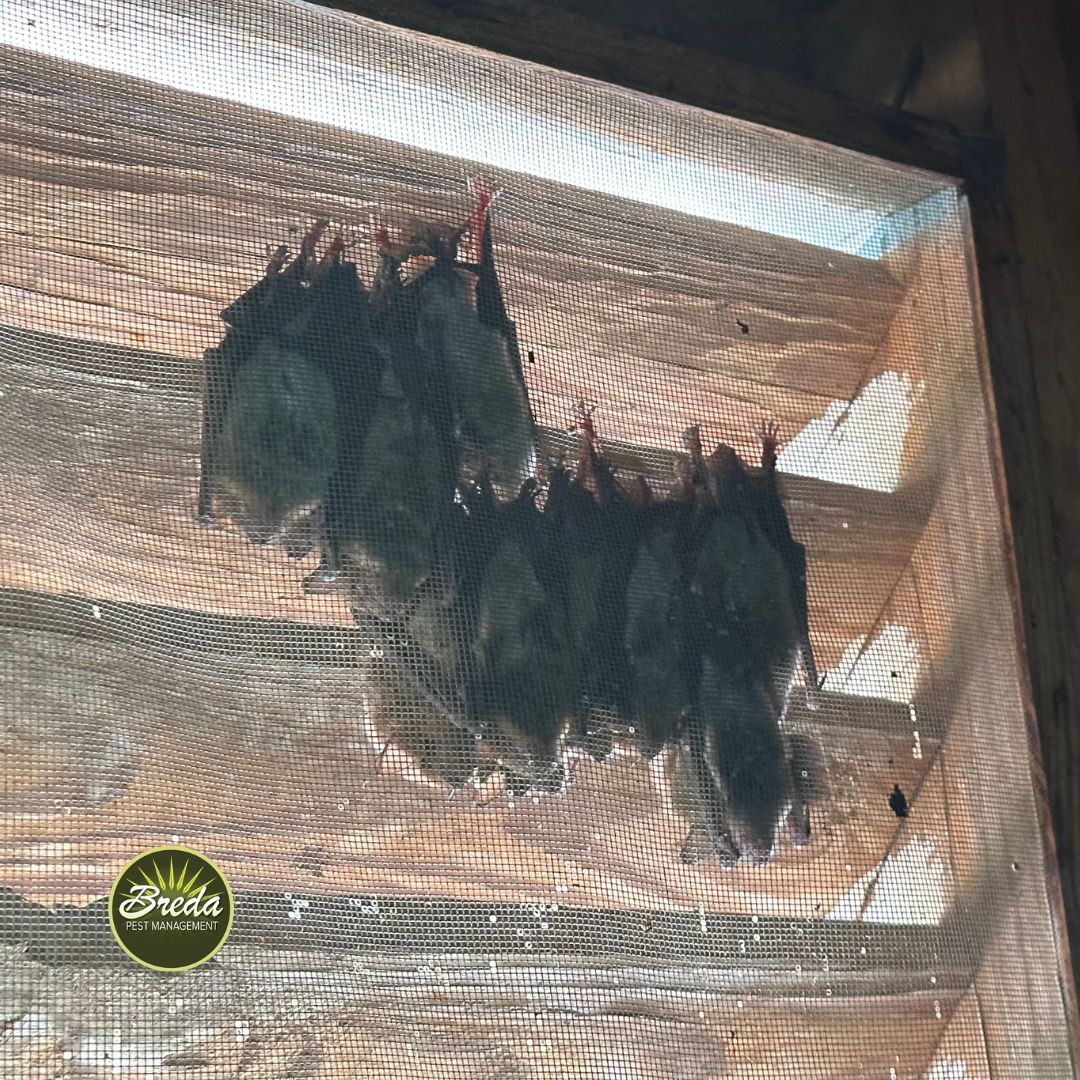
Learn some Georgia bat facts that will shed light on some common bat myths
Bats have long been surrounded by myths and misconceptions, leading to unnecessary fear and misunderstanding of these very helpful critters. Georgia is home to several bat species, and understanding the truth about these creatures can help us appreciate their role in the ecosystem. Let's separate fact from fiction about Georgia's bats and uncover the reality behind these common bat myths.

Myth 1: All Bats Carry Rabies
One of the most persistent myths is that all bats carry rabies. While it's true that bats can carry rabies, the reality is that only a tiny percentage of bats are actually infected. According to the CDC, the vast majority of rabies cases in the US are caused by bat bites, but this doesn't mean most bats have rabies. If you see a bat, it's not very likely it's carrying rabies. It's important to exercise caution and avoid handling bats, but there's no need to fear every bat you encounter.
Myth 2: Bats Want to Suck or Drink Your Blood
The idea that bats want to suck or drink your blood is another common misconception. This myth likely stems from the existence of vampire bats, which do feed on blood. However, vampire bats are native to Latin America and are not found in Georgia. The bats in Georgia primarily feed on mosquitoes, beetles, and other flying insects like moths. Because of this, bats are incredibly beneficial for pest control, helping to reduce the population of insects that can harm crops and spread diseases.
Myth 3: Bats Are Dangerous to Humans
Many people believe that bats are dangerous and should be avoided at all costs. While it's wise to avoid handling bats due to the small risk of rabies, bats are generally not dangerous to humans. They play a crucial role in controlling insect populations and contribute to the health of our ecosystems. Farmers, in particular, benefit from the presence of bats as they help control pests that can damage crops.

Myth 4: Bats Are Pests
Contrary to the belief that bats are pests, they are actually quite beneficial. Bats help control mosquito populations, which can reduce the spread of mosquito-borne diseases. Additionally, bats feed on agricultural pests, protecting crops and reducing the need for chemical pesticides. Far from being a nuisance, bats provide valuable services that benefit both humans and the environment.
Myth 5: Bats Are Blind
The saying "blind as a bat" is completely misleading. Bats are not blind; in fact, they have great eyesight. Many bat species rely on echolocation to navigate and find food in the dark, but this doesn't mean they can't see. Their vision is adapted to low-light conditions, allowing them to hunt effectively at night.
The Importance of Bats in Georgia
Bats play a significant role in Georgia's ecosystem. By feeding on mosquitoes and other insects, they help control pest populations and reduce the spread of insect-borne diseases. They also contribute to agriculture by preying on pests that can damage valuable crops. Understanding and appreciating the role of bats can help dispel myths and reduce unnecessary fear.
While it's important to be cautious and avoid handling bats, there's no need to fear them. Bats are valuable allies in pest control and contribute significantly to the health of our ecosystems. By debunking these common myths, we hope we've given you a greater appreciation for these fascinating creatures and their role in our world.
For more information on bats and pest control, contact BREDA Pest Management. Our wildlife experts can help you understand and manage any bat-related concerns you may have.
If you find yourself needing pest control and want it handled thoroughly, don't hesitate to give us a call. The BREDA Guarantee promises to fix your pest problem and keep it fixed—no matter the circumstances. Schedule a consultation online or give us a call at 770-466-6700.




